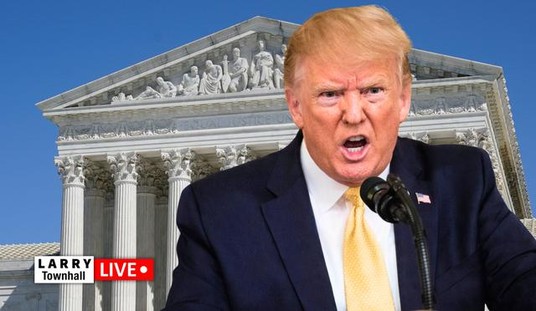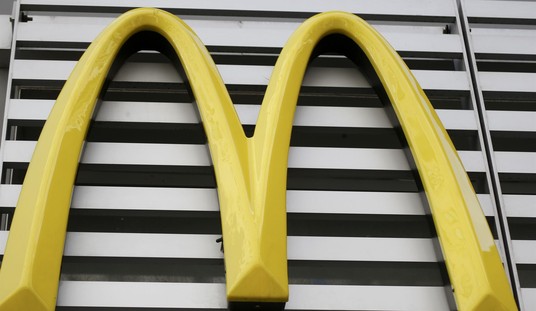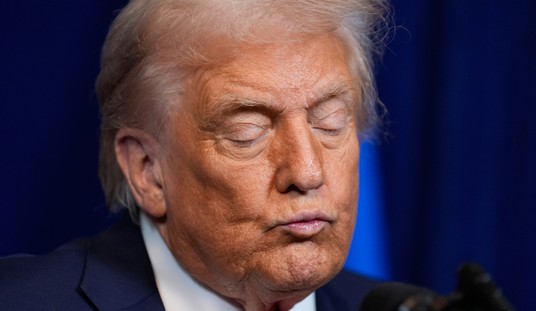President Donald Trump has said a lot of odd, offensive, and utterly bizarre things during his time in office (and during his entire life as well), but the comments he made to reporters today might prove to be among the dumbest.
As RedState reported earlier today, Special Counsel Robert Mueller wants to question Trump regarding the dismissal of two members of his administration, national security adviser Michael Flynn and FBI Director James B. Comey.
The White House had indicated that they were willing to be “fully cooperative” with Mueller but it wasn’t clear whether Trump himself would voluntarily submit to an interview.
This afternoon, Trump cleared up the issue. In this audio recording posted by CNN, Trump said several times that he is not only willing to be interviewed by Mueller, but eager for it.
“I’m looking forward to it, actually,” said Trump. “Just so you understand, there’s been no collusion whatsoever, there’s no obstruction whatsoever, and I’m looking forward to it.”
“I’d like to do it as soon as possible,” continued Trump, “subject to my lawyers and all of that, but I’d love to do it.”
He also added, “I would do it under oath,” unlike Hillary Clinton, “you know she didn’t do it under oath, right?”
Audio: President Trump tells reporters he would be happy to talk to special counsel Robert Mueller under oath, but will listen to the advice of his lawyers https://t.co/GA4qCZUgNa pic.twitter.com/Ld8R0ozdCB
— CNN (@CNN) January 24, 2018
Trump’s hubris may finally catch up to him if he does sit down for a chat with Mueller. The entirety of what we know about Trump’s habits and personality — from his years as a television personality and his many comments during the campaign and since becoming President — is that he frequently engages in a range of misrepresentations, everything from the relatively minor ego-boosting puffery when he brags about himself, to flat-out, outright, easily-disproven lies.
Trump has also shown a desperately emotional need to prove to the American people that he is in the clear, from his “No puppet, no puppet, you’re the puppet” retort to Clinton during their last debate to his broken-record repetition that there had been “no collusion” and “no crime” in recent interviews.
Add in his rhetorical style of communicating in a stream-of-consciousness style, tweeting or blurting out whatever is on his mind, and a stubborn fixation on explaining why his viewpoint is correct, and Trump is a prosecutor’s dream — or a defense attorney’s nightmare.
Attorneys who are preparing their clients for any type of questioning where they will be under oath, whether it be a deposition in a civil trial or a cross-examination during a criminal proceeding, always encourage restraint and prudence in their answers. Often the most damage is done when a clever opposing counsel needles the witness into an emotional outburst, or baits him into a feeling that he “needs to explain.”
Trump sitting across the table from the stoic Mueller, who has already questioned several members of his campaign and administration, and is expected to question many more, will likely feel compelled to tell his “side of the story.”
And that’s where the trap can be laid.
If Trump is questioned under oath, even the tiniest departure from the truth will mean he has committed perjury.
Even if Trump submits to Mueller’s questions without being put under oath, it is still a felony to lie to the FBI, pursuant to 18 United States Code § 1001, which specifically criminalizes “knowingly and willingly” making false statements. This is the law that ensnared everyone from Martha Stewart to Bernie Madoff to even someone relevant to Trump’s current predicament, Michael Flynn.
The breadth of this law has been interpreted by the courts to even criminalize the “exculpatory no,” so you are not even allowed to lie to deny wrongdoing. The Fifth Amendment’s protections against self-incrimination allow you to refuse to answer the question, but not to falsely proclaim your innocence if that is not completely accurate.
In fact, § 1001 is such a broad and powerful tool for prosecutors, it has been interpreted as even allowing the FBI to lie to the person they are questioning, as @Popehat noted:
/2 Another reminder: the FBI can lie to you. The FBI can even lie to the court as long as it isn't "material" — that is, as long as it doesn't make a difference in the result. You can't lie to the FBI. The definition of "material" is much harsher for you.
— AntifaProvocateurHat (@Popehat) December 1, 2017
This blog post on a white collar defense law firm’s website has a helpful discussion of the many ways that someone can fall into a trap when questioned by the FBI, including panicking under stress and “blurt[ing] out falsehoods to cover up past misdeeds, even very small misdeeds” or “easily mak[ing] factual mistakes” in recounting minor details of events that happened years ago.
“Disciplined” and “prudent” are not words used to describe Trump, with his penchant for emotional outbursts on Twitter denouncing anyone who dares criticize his perception of his own grandeur and power. Sitting in a room with Mueller and questioned about possible wrongdoing by his inner circle of advisers and family members, and his own possible knowledge or participation therein, is going to present an overwhelming temptation for Trump to respond.
Trump did leave himself an out, with his comment that his participation was “subject to my lawyers and all of that,” but he has also spent months insisting that his administration is “fully cooperating” and there was “no collusion, no crime.” The temptation for him to make that argument directly to Mueller may prove to be irresistible for the President.
Robert Mueller has laid a heck of an enticing trap for Trump, and he is voluntarily running straight for it.
Follow Sarah Rumpf on Twitter: @rumpfshaker.














Join the conversation as a VIP Member